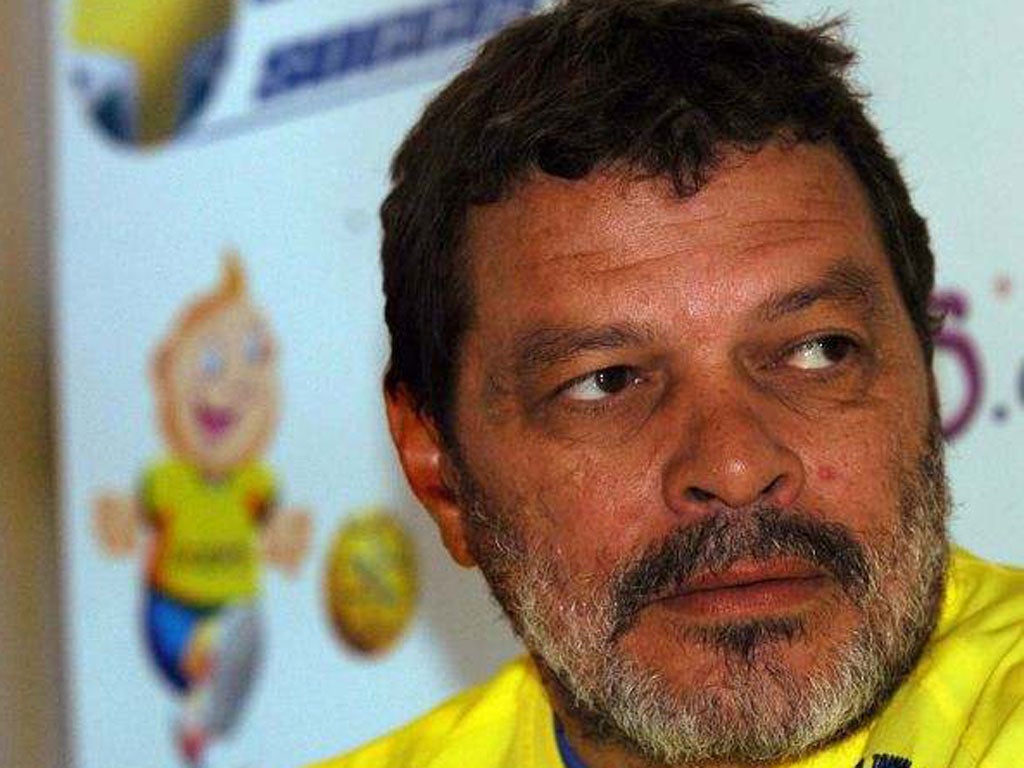Socrates: the man who made Brazil really beautiful
The outspoken star, who died yesterday, played the game with style. By Tim Rich

Your support helps us to tell the story
From reproductive rights to climate change to Big Tech, The Independent is on the ground when the story is developing. Whether it's investigating the financials of Elon Musk's pro-Trump PAC or producing our latest documentary, 'The A Word', which shines a light on the American women fighting for reproductive rights, we know how important it is to parse out the facts from the messaging.
At such a critical moment in US history, we need reporters on the ground. Your donation allows us to keep sending journalists to speak to both sides of the story.
The Independent is trusted by Americans across the entire political spectrum. And unlike many other quality news outlets, we choose not to lock Americans out of our reporting and analysis with paywalls. We believe quality journalism should be available to everyone, paid for by those who can afford it.
Your support makes all the difference.Now, the sight of him would horrify most Premier League managers. He drank, he smoked, he had opinions and, worse, they were left-wing opinions. Sir Alex Ferguson, a different kind of socialist, insists the manager must always be the most important figure in a club. Socrates' vision was of a club run by players.
He was what Keith Richards would have been had he fallen in love with the 1953 Hungarians rather than Chuck Berry, although Socrates' drink of choice was beer rather than Jack Daniels. Like George Best, he never properly acknowledged that alcohol was killing him until it was too late. As a footballer, he practised what he preached; as a doctor, he did not.
It is perhaps just as well that Socrates (right) believed it was how, rather than whether, you won that mattered because he is the central figure in one of the most gloriously spectacular failures of any World Cup. Like Hungary in 1954 and the Netherlands 20 years later, the 1982 World Cup should have been won by Brazil.
Ever since he uttered the phrase "o jogo bonito" – which is just about the only memorable thing Pele has ever said – there has been a myth that Brazilian football is always about "the beautiful game". But the sides that lifted the World Cup in Los Angeles in 1994 and Yokohama in 2002 were functional and almost Germanic in their relentlessness. The boys of '82, the side that the tall medical student from Ribeirao Preto captained, was the only one that was truly beautiful, the only one that stepped from the shadows cast by the team of 1970. There is one critical difference, though: the boys of 1970 were the subject of rigid discipline and preparation.
Still, Socrates' finest moment came in 1982, not in lifting the World Cup but by captaining Corinthians to the Brazilian title in November. He had forced the club to become virtually a workers' co-operative, with decisions taken by a players' vote. Their shirts had no sponsors, just the world "Democracy" on their backs. "Perhaps it was the most perfect moment I ever had," he said. "The best thing that football gave me was a chance to get to know human beings. I got to meet people who suffered a lot and those on the other side of society that had everything."
Join our commenting forum
Join thought-provoking conversations, follow other Independent readers and see their replies
Comments